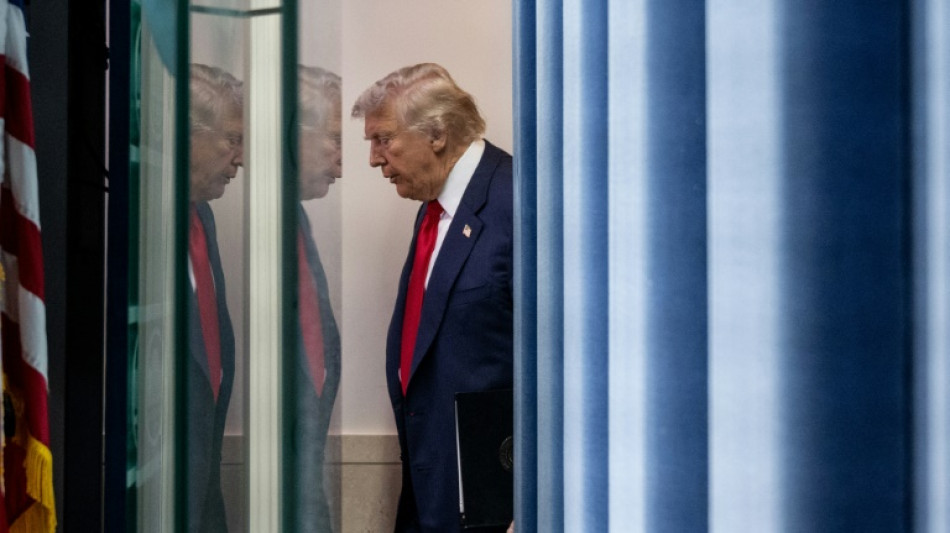
-
 Anisimova beats Swiatek to reach WTA Finals last four
Anisimova beats Swiatek to reach WTA Finals last four
-
US Supreme Court appears skeptical of Trump tariff legality
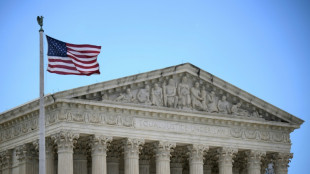
-
 AC Milan post third straight annual profit on day of San Siro purchase
AC Milan post third straight annual profit on day of San Siro purchase
-
Angelina Jolie visits Ukrainian frontline city, media reports say

-
 UN says forests should form key plank of COP30
UN says forests should form key plank of COP30
-
Star designer Rousteing quits fashion group Balmain

-
 Mexico's Sheinbaum steps up cartel fight after murder of anti-narco mayor
Mexico's Sheinbaum steps up cartel fight after murder of anti-narco mayor
-
Attack on funeral in Sudan's Kordofan region kills 40: UN

-
 Key PSG trio set for spell on sidelines
Key PSG trio set for spell on sidelines
-
Democrats punch back in US elections - and see hope for 2026
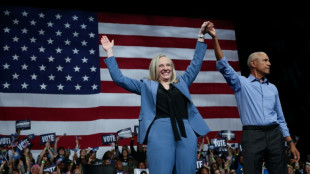
-
 BMW reports rising profitability, shares jump
BMW reports rising profitability, shares jump
-
US Supreme Court debates legality of Trump's tariffs
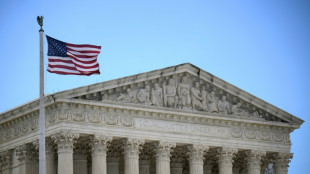
-
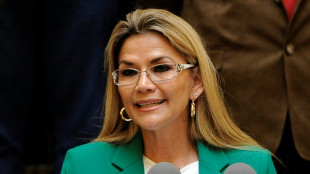 Bolivia Supreme Court orders release of jailed ex-president Jeanine Anez
Bolivia Supreme Court orders release of jailed ex-president Jeanine Anez
-
Wall Street stocks rise after positive jobs data
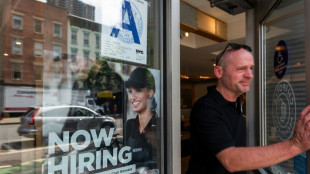
-
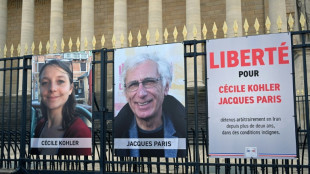 'Hostage diplomacy': longstanding Iran tactic presenting dilemma for West
'Hostage diplomacy': longstanding Iran tactic presenting dilemma for West
-
Rybakina stays perfect at WTA Finals with win over alternate Alexandrova

-
 Le Garrec welcomes Dupont help in training for Springboks showdown
Le Garrec welcomes Dupont help in training for Springboks showdown
-
Brussels wants high-speed rail linking EU capitals by 2040
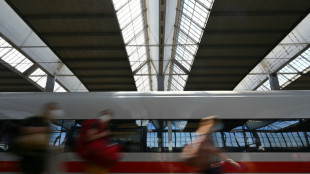
-
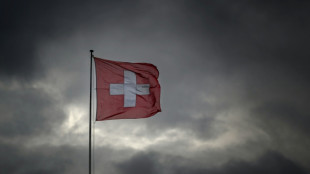 Swiss business chiefs met Trump on tariffs: Bern
Swiss business chiefs met Trump on tariffs: Bern
-
At least 9 dead after cargo plane crashes near Louisville airport

-
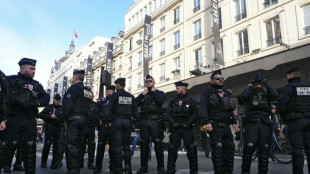 France moves to suspend Shein website as first store opens in Paris
France moves to suspend Shein website as first store opens in Paris
-
Spain's exiled king recounts history, scandals in wistful memoir
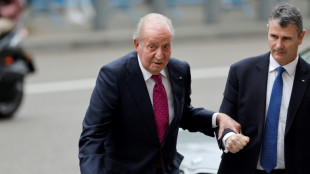
-
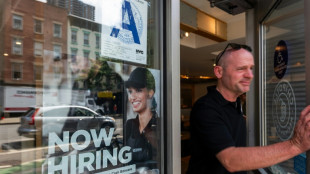 Wall Street stocks steady after positive jobs data
Wall Street stocks steady after positive jobs data
-
Trump blasts Democrats as government shutdown becomes longest ever
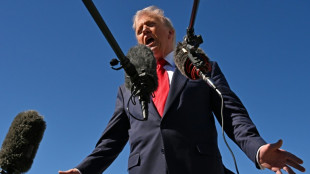
-
 Indian pilgrims find 'warm welcome' in Pakistan despite tensions
Indian pilgrims find 'warm welcome' in Pakistan despite tensions
-
Inter and AC Milan complete purchase of San Siro

-
 Swedish authorities inspect worksite conditions at steel startup Stegra
Swedish authorities inspect worksite conditions at steel startup Stegra
-
Keys withdraws from WTA Finals with illness

-
 Prince Harry says proud to be British despite new life in US
Prince Harry says proud to be British despite new life in US
-
BMW boosts profitability, welcomes Nexperia signals

-
 EU strikes last-ditch deal on climate targets as COP30 looms
EU strikes last-ditch deal on climate targets as COP30 looms
-
Stocks retreat as tech bubble fears grow

-
 Shein opens first permanent store amid heavy police presence
Shein opens first permanent store amid heavy police presence
-
West Indies edge New Zealand despite Santner brilliance

-
 French pair released by Iran await return home
French pair released by Iran await return home
-
German factory orders up but outlook still muted

-
 Death toll tops 100 as Philippines digs out after typhoon
Death toll tops 100 as Philippines digs out after typhoon
-
Attack on key city in Sudan's Kordofan region kills 40: UN

-
 'No one could stop it': Sudanese describe mass rapes while fleeing El-Fasher
'No one could stop it': Sudanese describe mass rapes while fleeing El-Fasher
-
Champagne and cheers across New York as Mamdani soars to victory

-
 Medieval tower collapse adds to Italy's workplace toll
Medieval tower collapse adds to Italy's workplace toll
-
BMW boosts profitability despite China, tariff woes

-
 South Africa's Wiese wary of 'hurt' France before re-match
South Africa's Wiese wary of 'hurt' France before re-match
-
Asian markets sink as tech bubble fears grow
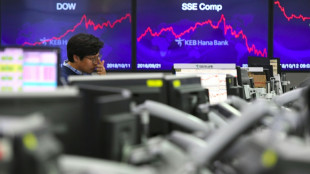
-
 Beyond limits: Croatian freediver's breathtaking record
Beyond limits: Croatian freediver's breathtaking record
-
Tottenham supporting Udogie after alleged gun threat in London

-
 Thunder roll Clippers to stay unbeaten as SGA keeps streak alive
Thunder roll Clippers to stay unbeaten as SGA keeps streak alive
-
In appeal, Australian mushroom murderer alleges 'miscarriage of justice'

-
 Toyota hikes profit forecasts 'despite US tariffs'
Toyota hikes profit forecasts 'despite US tariffs'
-
Typhoon death toll soars past 90 in the Philippines


US, China extend tariff truce for 90 days
China and the United States delayed higher tariffs on each other's imports for 90 days, hours before a trade truce between the world's two largest economies was due to expire Tuesday.
US President Donald Trump signed an executive order on Monday that will "extend the Tariff Suspension on China for another 90 days," according to a post on his Truth Social platform.
The White House said its halt on steeper tariffs will be in place until November 10.
China also said it would continue suspending its earlier tariff hike for 90 days, starting August 12, while retaining a 10-percent duty, according to a joint statement.
While the United States and China slapped escalating tariffs on each other's products this year, bringing them to prohibitive triple-digit levels and snarling trade, both countries in May agreed to temporarily lower them.
As part of their truce that month, fresh US tariffs targeting China were reduced to 30 percent and the corresponding level from China was cut to 10 percent.
Those rates will now hold until November -- or whenever a deal is cut before then.
In the executive order posted Monday to its website, the White House reiterated its position that there are "large and persistent annual US goods trade deficits" and they "constitute an unusual and extraordinary threat to the national security and economy of the United States."
The order acknowledged Washington's ongoing discussions with Beijing "to address the lack of trade reciprocity in our economic relationship" and noted that China has continued to "take significant steps toward remedying" the US complaints.
Beijing, meanwhile, said it would "take or maintain necessary measures to suspend or remove non-tariff countermeasures against the United States," as agreed in Geneva in May.
- Trump-Xi summit? -
In Shanghai, China's commercial capital, residents welcomed the extended trade truce on Tuesday.
"I feel that negotiations will definitely steer the two countries toward a better direction," said Zhang Xuan, a 25-year-old postgraduate student.
Lin Peng, a commercial property leasing agent, told AFP he felt there would be more negotiations between the two nations as Trump is a "businessman" and an escalated trade war would "hurt his own interests too."
"Beijing will be happy to keep the US-China negotiation going, but it is unlikely to make concessions," warned William Yang, an analyst at the International Crisis Group.
He believes China sees its leverage over rare earth exports as strong, and that Beijing will likely use it to pressure Washington.
US-China Business Council president Sean Stein said the extension was "critical to give the two governments time to negotiate an agreement," providing much-needed certainty for companies to make plans.
Since Trump took office in January, China's tariffs have essentially boomeranged, from the initially modest 10 percent hike in February, followed by repeated surges as Beijing and Washington clashed, until it hit a high of 145 percent in April.
Now the tariff has been pulled back to 30 percent, a negotiated truce rate.
A trade deal would "pave the way for a Trump-Xi summit this fall," said Asia Society Policy Institute senior vice president Wendy Cutler.
But Cutler, herself a former US trade official, said: "This will be far from a walk in the park."
Even as both countries reached a pact to cool tensions after high level talks in Geneva in May, the de-escalation has been shaky.
Key economic officials convened in London in June as disagreements emerged and US officials accused their counterparts of violating the pact. Policymakers met again in Stockholm last month.
- 'Reciprocal' tariffs -
Trump said in a social media post Sunday that he hoped China will "quickly quadruple its soybean orders," adding this would be a way to balance trade with the United States.
China's exports reached record highs in 2024, and Beijing reported that their exports exceeded expectations in June, climbing 5.8 percent year-on-year, as the world's number-two economy works to sustain growth.
Since returning to the presidency, Trump has separately slapped a 10 percent "reciprocal" tariff on almost all trading partners, aimed at addressing trade practices Washington has deemed unfair.
This surged to varying steeper levels last Thursday for dozens of economies.
Major partners like the European Union, Japan and South Korea now see a 15 percent US duty on many products, while the level went as high as 41 percent for Syria.
The "reciprocal" tariffs exclude sectors that have been targeted individually, such as steel and aluminum, and those that are being investigated like pharmaceuticals and semiconductors.
I.Matar--SF-PST
